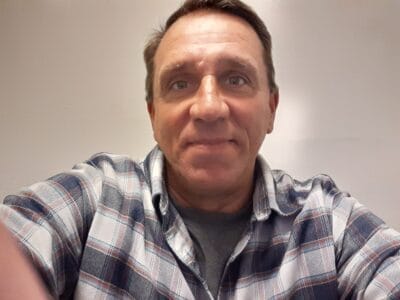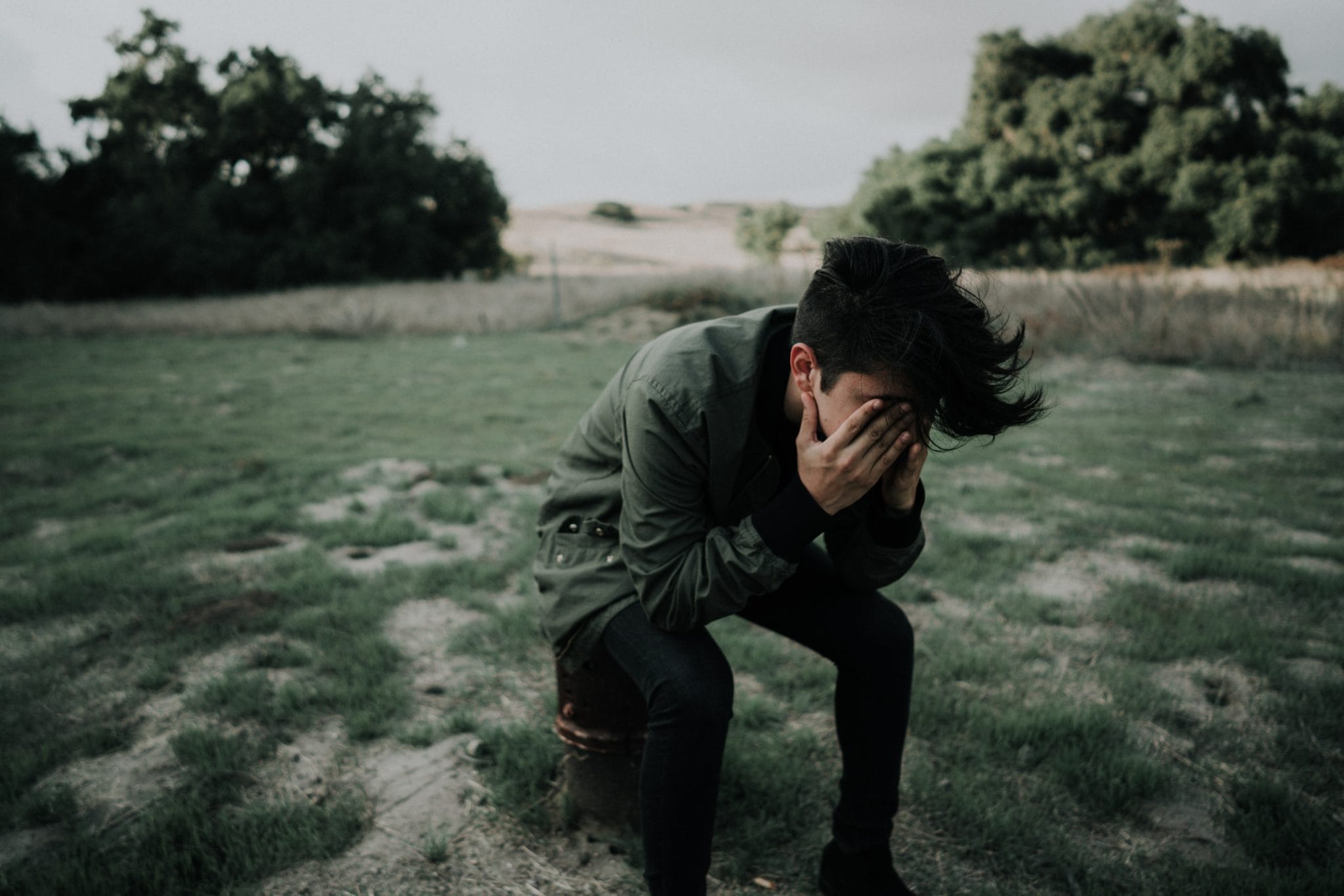Healing Through Paying it Forward
Richard was homeless, a convicted bank robber, an addict, and the father of a deceased child. Today he is a student, a community advocate, a volunteer, and a mentor to those in need. His recovery journey has made him into the person he is proud to be today.

Story
My name is Richard, and I’m originally from Boston, but I have lived in San Francisco for the majority of my life. I enjoy life now, which was not always the case. As I share my story, I hope that parts of it may resonate with some of you in a way that is helpful or makes you believe that anything is possible. I know this for a fact because for so long, I did not think I would be alive at this point in my life, and I didn’t think it mattered if I was. That is not the case today, but it took a lifetime to get there.
My wish for you—and what I attempt to do in my community—is to help others help themselves with the safest, least harmful choices available.
I didn’t understand that it was not the destination that counts but the journey itself. Before I begin, let me say that I am a member of Alcoholics Anonymous and am, therefore, abstinent from alcohol and drug use. I fully understand if that is not your path. While being abstinent myself, I encourage harm reduction, which includes needle exchanges, safe injection sites, and safe sobering sites. I support using whatever tools/means you have to help get you safely through the issues you’re dealing with in life. My wish for you—and what I attempt to do in my community—is to help others help themselves with the safest, least harmful choices available.
In life, I have found it is important to reach out to others and let them know that I understand, empathize, and care for everyone, and I in no way judge anyone. In order to do this, I first have to let them know my truths, both the good and the bad. Maybe you understand, as I do, that the truth is not always pretty, and I know this might sound corny (it did to me for so long), but the truth will set you free. Honesty is the cornerstone of my life today, but it was nowhere to be found for years.

When I was a boy, I thought everyone except me had instructions on how to live. I never felt cool enough, smart enough, handsome enough, or funny enough. I had childhood trauma at home and may have been the victim of sexual abuse at the hands of an uncle who lived with us briefly when I was in the second and third grade. Looking back at this time, I realized that I changed from a happy little boy into a troubled child. I began to dislike school, was truant, got in fights, started to isolate, did not do any homework, and had fits of anger and rage. I wanted so desperately to change the way I felt or to not feel at all. Then, someone gave me my first drink at the age of 12. I instantly liked what it did to me—I could face the world, do and say anything, and had no worries or cares. But this feeling of bliss was only temporary. From a very early age, drinking created major consequences in my life, consequences that led me to fall in love with drugs. Even though my substance abuse and addiction were creating a lot of negative consequences, I continued to use. It was the only thing I cared about.
I was arrested and sentenced to six years in the United States penitentiary, all while my girlfriend was six months pregnant with our son.
I have lost jobs, destroyed relationships, compromised myself sexually, and crashed cars. I have also contracted HIV, hepatitis C, viral meningitis, and have had skull fractures and broken bones. I was homeless in San Francisco for five years. I put needles in my arm, drank to oblivion, and picked through barrels for scraps and trinkets to sell. I broke into cars and stole laptops, cameras, bikes, and money from other junkies. I attempted suicide twice. I walked into six different banks over three months with demand notes for money to supply my speed habit. I was arrested and sentenced to six years in the United States penitentiary, all while my girlfriend was six months pregnant with our son. I could write volumes on the soul-crushing experience of high security and violent incarceration, but I am sure you get my drift.
Upon my release from prison, I attempted to go straight but had no idea what true recovery meant. I managed to stumble through federal supervised release, but once I was clear of that I began shooting speed heavily. I lost my job and felt like I was a deadbeat dad to my son, Sean, whom I loved dearly. I was asked to leave our home and became homeless, psychotic, and delusional. During this time, my beloved son died tragically in an accident while visiting his grandmother. He was 11 years old. Consequently, I sank further into IV speed use. The combination of drug use, Sean’s tragic death, as well as delusions and psychosis, led me to be committed to Napa State Hospital. This was the result of an assault committed during a methamphetamine-induced psychosis. I was found not guilty by reason of insanity in San Francisco Superior Court. Again, I could write volumes about what it was like to spend over three years in the Department of State hospitals, including a significant amount of time in Napa State Hospital’s secure treatment area. Suffice it to say that it was beyond anything I ever imagined, and I will never forget it nor do I wish to. All of this is part of who I am today. I would not be the person I am becoming without having experienced all of this—the good and the bad.
I learned not to cover these feelings up with drugs and alcohol. I asked for support, and it was given.
I learned about the 12-step recovery program at Napa State Hospital and was released in 2014. In 2015, I relapsed, but since then I have been sober for two and a half years. Here’s why I say anything is possible: I finally decided to ask for help. Social service agencies in San Francisco pointed me in the right direction. I started treating my medical conditions and was prescribed HIV drugs. In 2016, my clinic cured my Hepatitis C. I joined AA and got a sponsor who worked with me during the tough times of early sobriety. I got a case manager. I worked closely with the Forensic AIDS Project through jail health services and slowly started to volunteer, exercise, quit smoking, and took on service commitments. None of this happened overnight. It takes time. I fell into traps and had to work my way through them. I learned that it was okay for me to feel lonely, tired, and scared. I learned not to cover these feelings up with drugs and alcohol. I asked for support, and it was given. I learned that tough times will pass, as long as I don’t return to the problem for the solution.

As time has passed, I’ve started taking more chances. By that I mean I challenged myself to do things I did not think I could, like ask questions and become part of the mainstream culture. As a result, the doors of opportunities have begun to open. I signed up for City College and am now a straight-A student in the Recovery and Addiction Counselors Program. I graduated from the RAMS Peer Specialist Mental Health Certificate course and have been accepted to the winter 2021 advanced course. I am a trained volunteer at the San Francisco Mental Health Warm Line. I also belong to the San Francisco Chapter of The Compassionate Friends, which is a support group for bereaved parents of deceased children. I am a full council member of the San Francisco HIV Community Planning Council, a mayoral appointment. I do a Friday-night needle exchange for St. James Infirmary, and I also do community outreach for End Hep C SF as well as San Francisco AIDS Foundation Harm Reduction Center and mobile syringe access sites.
None of these things would have been possible if I had not gone through what I did. I hope this story will remind other people to take their time, be good to themselves, reach out for help, and make a decision to change if that’s what they want. My life is beyond my wildest dreams. I give back to my community, care for others, and I finally love myself.
About the contributor
Richard Sullivan hails from Boston, Massachusetts, but has lived in San Francisco for most of his life. Along with being a student, he has multiple volunteer commitments involving harm reduction and public health. He enjoys exercise, biking, swimming, watching movies, reading, and the beach.